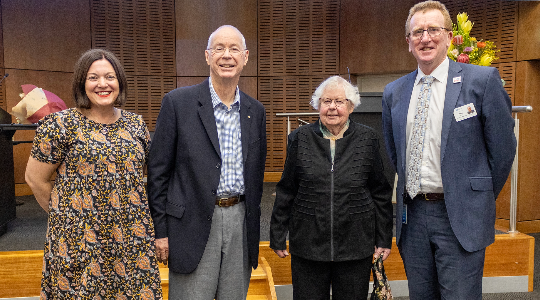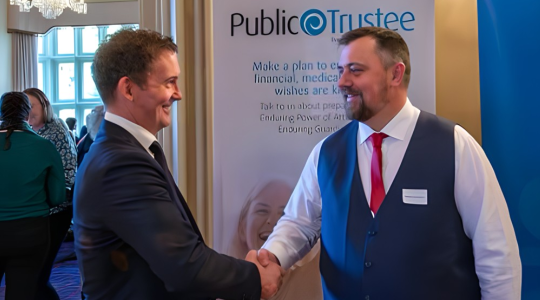Dying To Know Day: discussing the importance of pastoral care and palliative care

Calvary Retirement Communities Director Mission Matthew Peel has been working in pastoral and palliative care for over 25 years. Matthew started volunteering in palliative care while studying in Adelaide in the early 1990’s and has continued in this line of work.
Matthew started working with Calvary in 2002. While not involved in the day to day provision of pastoral and palliative care, he provides leadership, support and mentoring for the pastoral care personnel in Calvary’s retirement communities.
Matthew said “I am based at our retirement community in Ryde and it gives me ample opportunities to be involved with our residents. It’s about knowing the person, understanding a little about who they are, where they have come from and who is important in their life at this moment”.
“Initially, I applied for a pastoral care job at a palliative care facility in Sydney in the early 1990’s because I was looking for a job in Pastoral Care and at that time, it was one of the few places around that were offering pastoral care roles which was a skill set I had. However, I soon discovered that this world I had entered into was a rare and privileged place. To be invited into a person’s life at this peak moment and to share their final moments on this earth is something that few are allowed. It was this that affirmed in me my decision to pursue this career. Since then I have worked in pastoral care roles in a number of health facilities that care for people who are dying and it is something I keep coming back to. This is how I can make a difference in the lives of people” said Matthew.
Matthew emphasised that talking about death and dying with your loved ones is an important part of our lives but one that each of us approaches differently. “I know that when I was much younger my family never spoke much about these things – it was avoided and I think part of the reason for this was that we did not have the words to express what we felt about death and dying. However, in my early teens, when I was confronted by the death of my father, I was unsure about what to do, what to think or what to say. This is a very personal place and thus, each person approaches it differently. What is appropriate for me to honour and remember a loved one who has died will be different for another. But an important starting point is your preparedness to have these conversations, to let those around you know that you are ok to speak about these things”.


